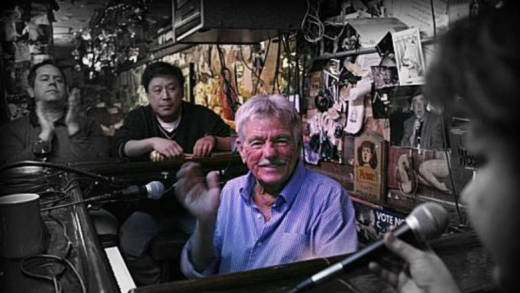People often say that the Alley, an Oakland piano bar that’s been around since 1933, is like a time capsule from a bygone era. And one of the people who made the classic neighborhood establishment feel timeless was pianist Rod Dibble, who passed away peacefully on Dec. 18, according to an announcement on the Alley’s Facebook page today.
Rod Dibble was and will always be an integral part of the Alley. He kept The Alley, as well as the Great American Songbook alive by playing night-after-night, song-after-song, with singer-after-singer for the better part of 50 plus years. By all accounts, he literally wore out 10 pianos in the process. He kept The Alley going and virtually unchanged throughout the decades keeping its unique character and grit intact. While the neighborhood around it changed, The Alley and Rod remained a constant with the walls layered and caked with its history and a repertoire of songs frozen in time.
Dibble, who was born in 1932 and manned the Alley’s piano bench since 1960, was a talented musician with over 4,000 songs committed to memory. Patrons of all walks of life, ages, and musical abilities frequented the bar to sing karaoke with Dibble’s accompanying them on piano. All the songs in his catalog dated from before 1970, and, even as music evolved, he stuck to classic standards, gaining a reputation as a local music historian.
“I always lay out the ground rules: If you want to play in my backyard, you sing my songs,” Dibble told the San Francisco Chronicle in 2011.
Dibble’s supporters remember him as an eccentric character that gave the Alley its unique personality. “When people come to town, it’s part of the list, like, ‘You have to come to the Alley,'” says Jason Stinnett, the talent buyer at Starline Social Club, who first started frequenting the Alley in 1994. “It’s one of Oakland’s oldest establishments and it’s such a gem, with Rod being the center of that.”



